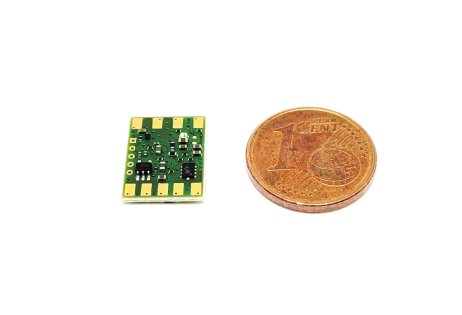XN8
Discover the Texense® XN8, our high-performance miniature digitally controlled strain gauge amplifier, with drift free temperature compensation, and proven electronics inside to withstand extreme conditions.
Product Description
The XN8 is a class-leading PCB analog strain gauge amplifier. It is an evolution of our iconic, race proven XN4. The XN8 has been designed for many applications including motorsport, aeronautics, and industrial applications.
The XN8 delivers performances even higher than the XN4. Our new device meets very demanding specifications while being fitted on carbon parts. This high grade, high-performance strain gauge amplifier can be digitally controlled by the user. Its main asset? Ultra-low temperature drifts! The XN8 will provide you with clean, smooth and linear compensation. With reduced offset drift and gain drift, a very high level of precision has been achieved on compensation, reaching a 0.5° resolution.
The XN8 is a user customizable PCB analog strain gauge amplifier, high resolution and high speed, with offset and gain adjusted by micro-controller. With an oversampling functionality, the ADC can be characterized.
Moreover, the XN8 has been designed with 2 different configuration spaces: one is destined for factory setup, while the other one is for the end-user’s setup. The XN8 can be calibrated according to tailor-made customer specs, without losing its initial factory setup. Most of the strain gauge amplifier parameters such as gain and offset are programmable by the user via a USB connection and laptop, which makes it a very convenient, easy to use device.
Thanks to a compact & miniaturized design which has made the success of the XN4, the XN8 strain gauge amplifier’s small size allows it to be bonded close to the gauges, which reduces noise on the signal. The XN8 is also fully EMI-RFI protected.
- User programmable Gain and Offset
- Offset value: 0 to 5V
- 100 Ohm output impedance
- Output signal can increase or decrease under load
- No need to apply a force to program a Gain
- Temperature compensation: from 2 to 12 hours
- Compensation table values can be edited
- Operating temperature: -40 to +125°C
- Noise reduction





 Pro Motorsport Sensors
Pro Motorsport Sensors
 Club Motorsport Sensors
Club Motorsport Sensors
 Controls Sensors
Controls Sensors

